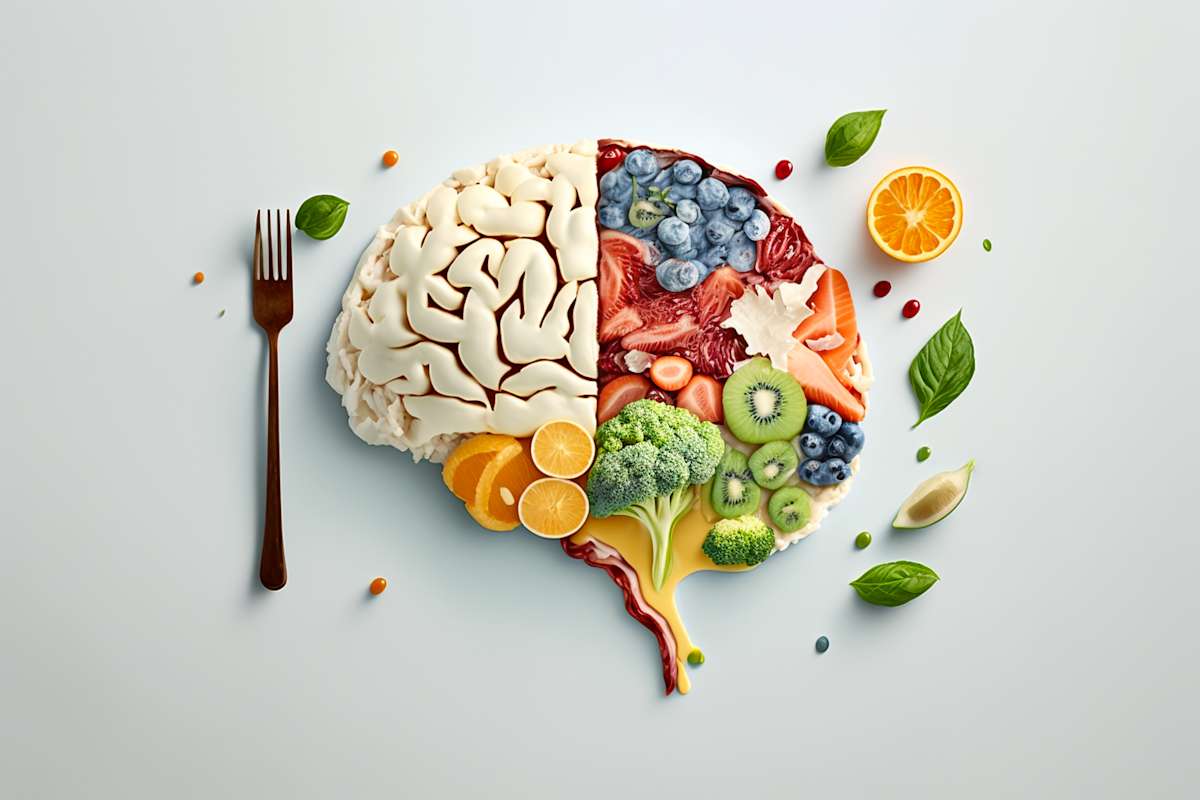Cannabis, CBD, Magic Mushrooms
The Link Between Diet and Brain Fog
Have you ever felt mentally slow, forgetful, or unfocused for no apparent reason? This experience is commonly referred to as brain fog—a non-medical term used to describe a state of cognitive dysfunction. While it’s not an official diagnosis, brain fog can significantly impact productivity, mood, and overall well-being. Surprisingly, one of the most overlooked causes of brain fog is diet.
The food you eat directly influences your brain’s function. From blood sugar stability to inflammation and nutrient intake, your diet can either sharpen your mind or cloud your thinking. Let’s explore how what you eat affects mental clarity and what you can do to regain your focus naturally.
What Is Brain Fog?
Brain fog isn’t a medical condition, but a symptom of something else going on in the body. People experiencing brain fog may report:
- Trouble concentrating
- Forgetfulness
- Confusion
- Mental fatigue
- Lack of motivation
These symptoms can be temporary or chronic, depending on their root cause—and diet plays a key role in both.
1. Blood Sugar Imbalances and Mental Slumps
When you consume high-sugar foods or simple carbs like white bread and pastries, your blood sugar spikes rapidly. This triggers a surge in insulin, followed by a sharp drop in blood sugar—often leaving you tired, irritable, and mentally foggy.
Better choices:
- Eat low-glycemic foods like whole grains, vegetables, legumes, and protein
- Combine protein and healthy fats with carbs to slow digestion and maintain stable energy
Science says: A study published in Nutrients found that stable blood sugar helps regulate cognitive performance and mood throughout the day.
2. Inflammation: A Silent Brain Blocker
Certain foods—particularly processed foods, refined sugars, and trans fats—can trigger systemic inflammation. Chronic inflammation affects the brain by disrupting neurotransmitter function and impairing memory and focus.
Pro-inflammatory foods to limit:
- Fast food
- Processed meats
- Sugary snacks and drinks
Anti-inflammatory foods to add:
- Berries, leafy greens, turmeric, walnuts, and olive oil
Research insight: A 2015 review in Frontiers in Neuroscience linked inflammatory diets to higher risks of cognitive decline and brain fog-like symptoms.
3. Gut Health and the Brain Connection
The gut and brain are intimately connected through the gut-brain axis. A healthy gut microbiome supports neurotransmitter production and reduces inflammation. Poor gut health, on the other hand, can impair cognitive function.
To support your gut:
- Eat fermented foods like yogurt, kefir, sauerkraut, and kimchi
- Add prebiotics (fiber-rich foods like bananas, garlic, and oats)
- Avoid antibiotics and excess sugar that can harm good bacteria
Evidence: A study in Psychosomatic Medicine found that individuals with a healthier gut microbiota had lower stress levels and better cognitive performance.
4. Nutrient Deficiencies and Mental Fatigue
Your brain relies on a steady supply of nutrients to function. Deficiencies in key vitamins and minerals can lead to symptoms of brain fog.
Watch for deficiencies in:
- Vitamin B12: Essential for memory and focus; found in eggs, fish, and dairy
- Vitamin D: Supports mood and mental clarity; get it from sunlight, fatty fish, or supplements
- Omega-3 fatty acids: Found in fish like salmon, flaxseeds, and chia seeds; critical for brain cell communication
- Iron: Low levels can lead to fatigue and poor concentration; found in spinach, legumes, and lean meat
Scientific backing: A study in The American Journal of Clinical Nutrition noted that omega-3 and B-vitamin supplementation improved brain function in older adults.
5. Food Sensitivities and Cognitive Effects
Food intolerances or sensitivities—such as those to gluten, dairy, or artificial additives—can trigger inflammation and immune responses that affect brain function.
If you suspect a food is causing your fogginess, try an elimination diet or consult a nutritionist for testing and guidance.
Tips to Eat for Mental Clarity
- Start your day with a balanced breakfast – Include protein, healthy fats, and fiber to fuel your brain.
- Snack smart – Choose nuts, seeds, fruit, or boiled eggs over sugary treats.
- Stay hydrated – Dehydration is a common cause of fatigue and poor focus.
- Limit alcohol and caffeine – Both can dehydrate you and affect sleep, leading to foggy mornings.
- Practice mindful eating – Chew slowly, savor your food, and avoid overeating.
Conclusion
Brain fog isn’t always about stress or lack of sleep—your diet might be the missing link. The foods you eat can either fuel your mind or cloud your thoughts. By focusing on balanced meals, whole foods, and proper hydration, you can sharpen your mental clarity, improve focus, and boost your overall brain health.
A clear mind starts with a clean plate.

